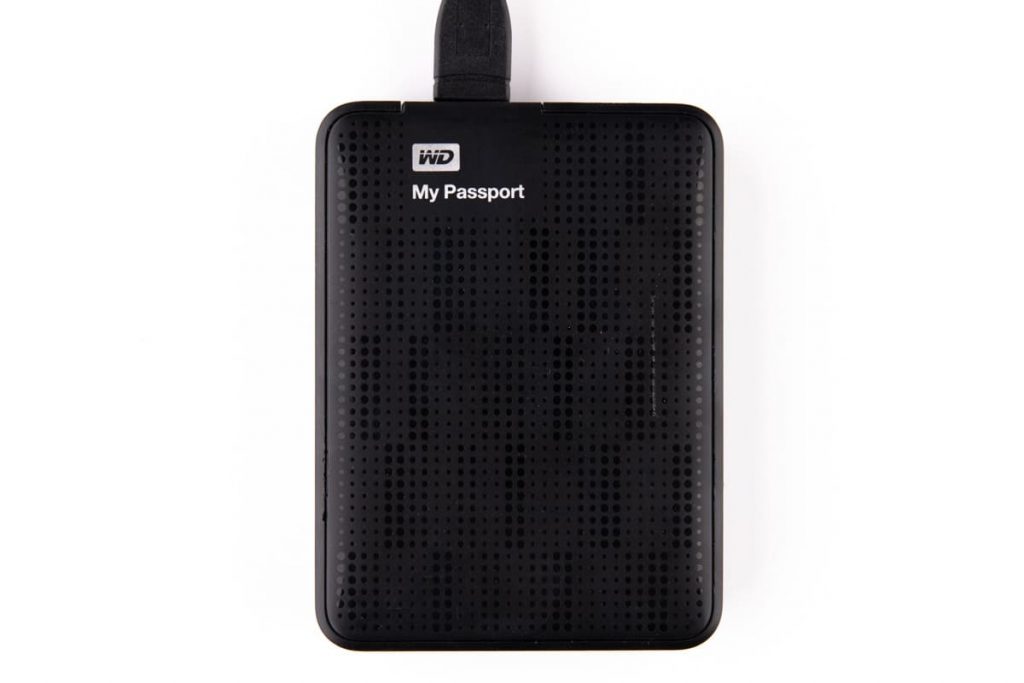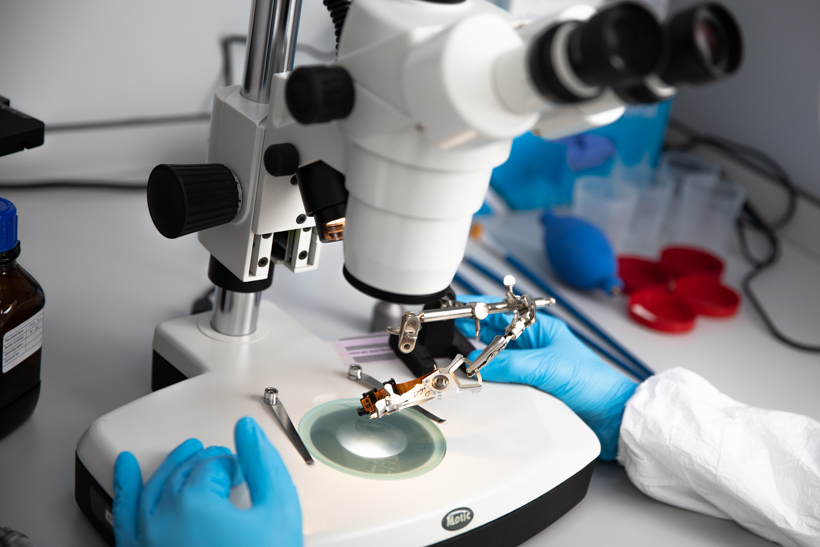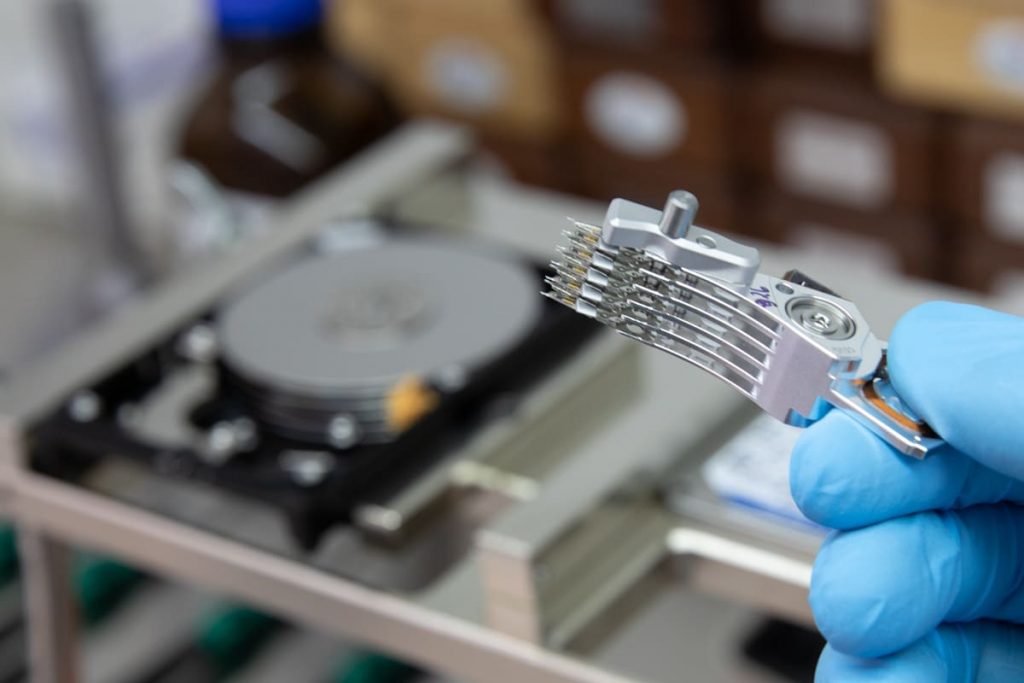Hard disk drives (HDDs) are considered one of the core parts of each laptop and desktop computer. Storing all valuable documents, photos, videos, music files on your computer, they are responsible for devices’ operating and storage systems. If something is wrong with an internal or external hard drive, it becomes dangerous for all important data and the wellbeing of your media.
Over the past few decades, hard drive manufacturers have extensively improved the devices. Today they offer larger storage capacities, faster speeds, and more compact sizes. Because of the increase in demand and frequent use, the hard drive failure cases also rise.
Hard Drive Click Of Death
Apart from the obvious error screen and failure to boot, hard drive clicking noise is one of the signs of failure. Hard drive making clicking noise is also called a “click of death,” but it is just a name. In fact, although it is a very complex process, clicking hard drive can be recovered if you do everything right. Following several easy but crucial steps, you can prevent additional damage and recover all data successfully.
Why Is A Hard Drive Making A Clicking Noise?
There are many possible causes of a hard drive clicking. While some of them are not critical, others can cause damage to the device. Whether you run Mac OS, Linux , or Windows operating system, your hard drive can eventually start clicking.
Typically, a hard drive clicking noise comes from the defective movement of the disk’s read/write head. To read/write data on a drive safely, the disk’s head has to move very smoothly.
When these movements become random and unstable, the drive controller tries to fix its position by repeatedly bumping back to the correct place. As a result, a computer user hears a “click” or “beep” sound coming from his hard drive.
This noise will last while the process repeats itself. There are different reasons a hard drive makes a clicking sound. If your hard drive is old, the clicking noise is probably caused by a problem with the disk head, which is not that dangerous.
But if the issue occurred with a new hard drive, the clicking can be caused by either a software or hardware problem. In any case, the data from a clicking hard drive can be recovered.
"*" indicates required fields
Causes of Hard Drive Clicking Sound
The data recovery process differs depending on the cause of the hard drive clicking. Realizing the reason for the failure, you can help data recovery experts estimate the difficulty and probability of successful results. Each case is individual and different, but there are common causes of a hard drive clicking.
The List of Common HDD Clicking Causes includes:
Wear and Tear
A hard disk drive has moving parts, which can experience regular wear and tear during continuous operation.
Power Surge
While a device is in motion, power surges can damage the HSA (Head Stack Assembly) and PCB (Printed Circuit Board).
Service Area Issues
The SA, with all the data for hard drive's operation, can get corrupted due to errors during module reading.
Physical Damage
Accidentally dropped external hard drive, water, or fire and smoke damage can cause a clicking noise and hard drive failure.
How To Fix Hard Drive Clicking
There can be a few reasons causing a clicking noise on a hard drive. Some of them are very easy to fix. If you have plugged several devices in at once, it may lead to power insufficiency and clicking as well. Try to plug your hard drive into a single power source.
If that doesn’t help, see if those cables are suitable for your hard drive and computer or try to replace them.
If these techniques do not help, you should immediately turn your device off to prevent further damage and contact a reliable data recovery service nearby.
External Hard Drive Is Clicking
A clicking hard drive is not the kind of situation that will get better on its own. It can cause terrible data loss and requires a responsible approach and immediate help.
Recovering files from a clicking external hard drive is a very complex process. Sometimes people trying to save their time and money choose to recover data with data recovery software. These data recovery tools do not guarantee the results and are not secure.

If they fail, which they usually do, they will leave you with additional damage and several unrecoverable file systems. In addition, these hard drive recovery tools do not store recovered files on secure servers. This means that in case of successful recovery, your files may go all over the Internet. For this reason, it is always better to contact a reliable data recovery service provider.
Also, we strongly do not recommend attempting to open your hard drive and repair it yourself. You can damage your device which can lead to complete hard drive failure. Even experts need specific tools while recovering data from a faulty hard drive.

A clicking hard drive means physical damage that should be fixed in a cleanroom. Cleanroom provides air filtration that protects open devices from airborne contaminants that can damage the platter of your disk.
While repairing failed hard drives, experienced data recovery engineers should use state-of-the-art tools and wear lint-free bodysuits, head coverings, overshoes, gloves, and masks. This ensures that a customer gets as much data as possible recovered.
Our professional data recovery engineers realize the value of data stored on hard drives, which is why we always follow requirements proven by our international certifications. Having years of experience and thousands of cases closed, we still maintain the highest in the industry success rate and 5-star customer reviews.
For professional assistance, contact our customer service or fill in the request form, and one of our team members will get back to you in a few minutes.
Frequently Asked Questions
What causes a hard drive to click?
A clicking sound from a hard drive typically indicates a mechanical or physical problem within the drive. This can be due to issues like a damaged read/write head, spindle motor failure, or disk platter damage.
Why is data recovery from a clicking hard drive challenging?
a. Potential Data Loss: Clicking often signifies a severe hardware malfunction, and every click could result in further damage to the drive, potentially leading to data loss.
b. Complex Repairs: To retrieve data, the drive may require complex repairs, such as head replacements or platter swaps, which demand specialized tools and expertise.
c. Risk of Permanent Damage: Incorrect handling during the recovery process can cause permanent damage, making it crucial to entrust the recovery to professionals.
Can I recover data from a clicking hard drive on my own?
Attempting DIY recovery on a clicking hard drive is strongly discouraged. Opening the drive without the proper equipment and knowledge can lead to irreversible damage and make the data unrecoverable. It’s best to consult data recovery experts like PITS.
How can I prevent my hard drive from clicking in the first place?
Regularly back up your data to an external source or cloud storage. Ensure your hard drive is kept in a stable, cool environment and handle it with care to reduce the risk of physical damage. Additionally, be cautious with sudden power outages and system crashes, as they can contribute to hard drive issues.
Is data recovery from a clicking hard drive always successful?
Success rates vary depending on the extent of damage and the timely intervention of professionals. While we strive for a high success rate, there are cases where severe damage can limit the amount of recoverable data.
